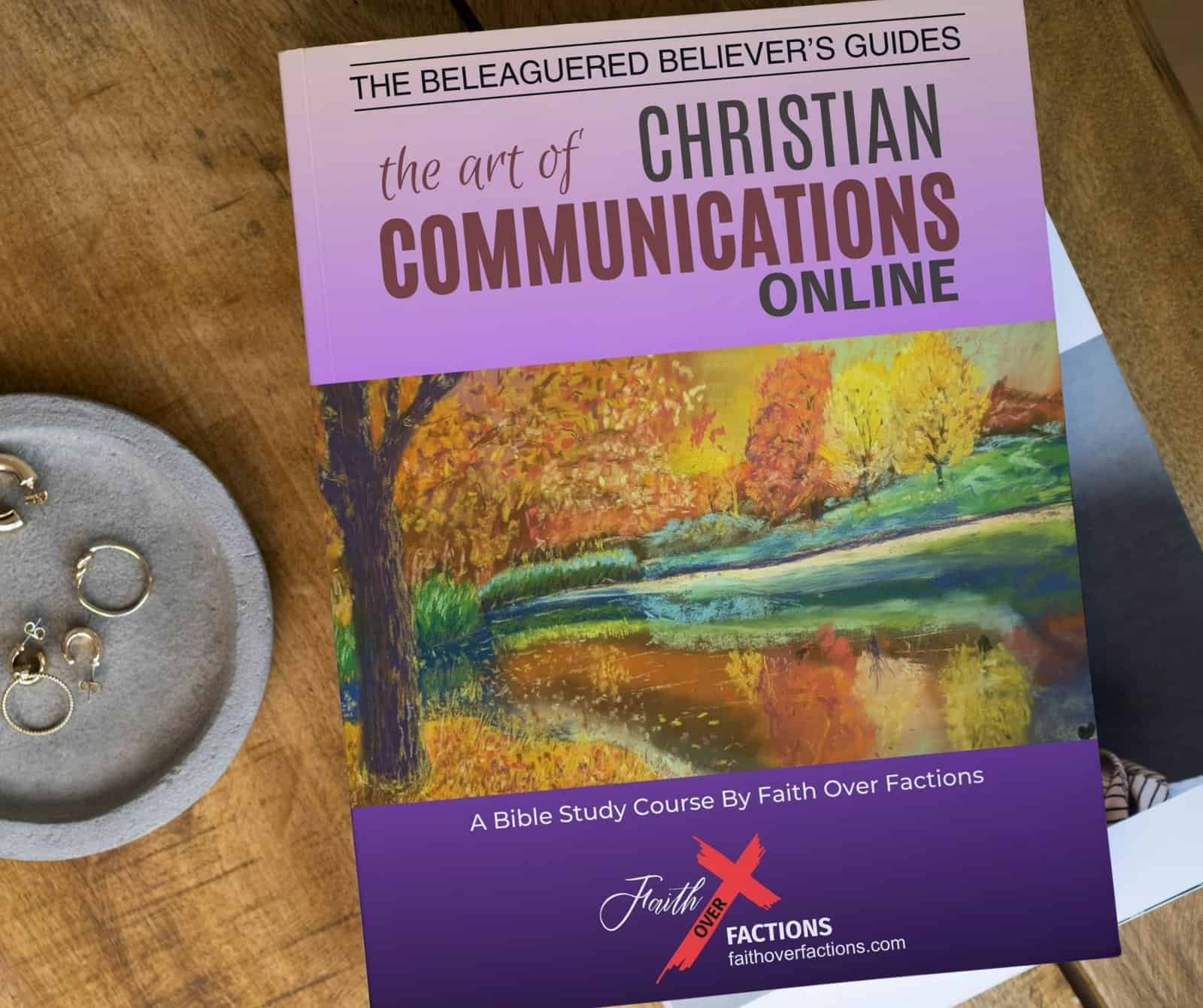
You try to love people who once walked beside you. They argue, insult, or twist your words. You stay kind, but the cost rises. Conversations drain you. Sleep disappears. The peace you once felt fades into tension.
You still love them. You just can’t stay in the fight.
That’s when love starts to look like distance. Not revenge. Not withdrawal. Just quiet space where your heart can heal and your prayers can stay honest.
Anchor Verse
Key Scripture
But I say, love your enemies. Pray for those who persecute you.
Matthew 5:44 (NLT)Key Scripture Context
Jesus spoke these words in a culture of hostility. People lived under Roman occupation. Disagreement often led to violence. When Jesus said to love enemies, He was not asking for surrender. He was teaching strength that holds its shape under pressure.
Love does not mean endless debate. It means you refuse to let hatred rule your heart. It means you protect what God has given you—peace, clarity, and dignity.
What We’re Facing
Modern life feeds conflict. Every screen demands reaction. Opinions replace empathy. The louder voice wins attention, not truth.
Disagreements tear families, churches, and friendships apart. Online debates turn into personal attacks. Many Christians confuse endurance with silence or boundaries with betrayal.
You may feel guilty for stepping away. You shouldn’t. Even Jesus often withdrew to quiet places to pray. He loved people without letting their chaos consume Him.
Three problems show up again and again:
Systemic pressure. Faith and politics blur. Churches divide over leaders and laws.
Spiritual fatigue. Constant debate replaces prayer. You stop listening for God’s voice.
Cultural manipulation. People confuse loyalty with holiness and power with righteousness.
The outcome is always the same. Hearts harden. Relationships break. Love shrinks.
Then and Now — Drawing Parallels
In Jesus’ time, zealots pushed for revolt. Pharisees argued law. Sadducees defended power. Each claimed to serve God. Few reflected His heart.
Today the forms differ, but the spirit remains. Many treat winning as proof of faith. The pattern repeats: force, pride, and public piety. Yet Jesus modeled restraint. He answered questions with questions. He spoke truth and walked away when hearts were closed.
The same wisdom applies now. You don’t need to win every argument. You need to stay faithful.
Theological Truth in Plain Language
Love without boundaries is not holy. It is codependence disguised as compassion. Real love has order. It knows when to reach out and when to pull back.
Jesus set boundaries all the time. He did not heal everyone. He did not stay where people refused to listen. When crowds demanded more, He walked away to pray. When the Pharisees tried to trap Him, He answered and then left. He loved deeply, but He did not let manipulation rule His ministry.
You can love like that. You can stay kind without being controlled.
Love does not mean giving people unlimited access to your mind or your emotions. It means you treat them with dignity, even when you must walk away. Boundaries keep your love clean. They protect your motives from turning into resentment.
Dietrich Bonhoeffer wrote that “nothing we despise in another is entirely absent from ourselves.”¹ That truth calls for humility. It reminds you that your enemy carries the same potential for grace that you do. Boundaries keep you humble enough to see that, while keeping you far enough away to stay sane.
A.W. Tozer said, “The meek man is not a human mouse… he may be as bold as a lion.”² Meekness is not weakness. It is power under control. It is choosing when to engage and when to stay silent. You are not failing God when you protect your peace. You are following His pattern.
Henri Nouwen described compassion as “going where it hurts.”³ Sometimes the hurt is staying close. Other times it is stepping back. Both require courage. Boundaries take courage because they expose your fear of being misunderstood. But without them, love becomes noise.
Boundaries are a spiritual discipline. They are not about distance. They are about direction. They point you back to God. They remind you that your first allegiance is to His peace, not to winning, convincing, or fixing.
Love the person. Guard your heart. Trust God with the space between.
Practical Moves of Faith
Prayer Prompt: God, teach me when to speak and when to stay silent. Help me love people without losing myself.
Check your motives.
Before you respond, ask why. Are you trying to defend truth or win? Are you seeking peace or control? The difference matters.
If you feel anger rising, pause. That moment of pause is a holy place. Let the Spirit test your heart.
Jesus never spoke from pride. Every word He said came from obedience. You can follow that pattern. If you need to take a breath or walk away before you answer, do it. That delay is not weakness. It is discipline.
Example: If a friend posts something online that attacks your beliefs, resist the pull to react. Ask if replying would build peace or feed conflict. If it won’t bring peace, let silence speak for you.
Name your limits.
You cannot pour from an empty soul. You cannot fix what someone refuses to face. Writing down your limits helps you stay honest about what you can give.
Decide how much time and energy you can spend on difficult relationships. Protect that space. Boundaries are not walls. They are lines of stewardship. They remind you that your time, mind, and heart belong to God, not to anyone else’s demands.
Example: If a family member argues every time faith or politics comes up, set a rule. Refuse to discuss those topics during visits. Talk about other things that connect you. You will feel lighter, and love will have room to breathe again.
Stay consistent.
Boundaries work only if you keep them. The first test will come when someone ignores them. Expect that. Calmly restate what you need. You do not need to explain or defend.
Consistency builds respect. Inconsistency creates confusion. The people who love you most will learn to trust your clarity. The ones who do not will try to push it. Stand firm anyway.
Example: If you say you will not answer messages after 9 p.m., keep that rule even when you feel guilty. Peace grows where discipline stays steady.
Choose peace over victory.
Winning arguments often loses hearts. Many believers confuse being right with being righteous. You can speak truth and still stay gentle. You can disagree without contempt.
When someone attacks you, remember Jesus’ example. He answered with clarity, not cruelty. He did not defend His worth. He trusted the Father to reveal it in time.
Peace is not passive. It takes strength to stay calm when others push. It takes faith to walk away and let God have the last word.
Example: If a co-worker mocks your beliefs, bless them quietly instead of replying. A kind response will linger longer than a sharp comeback.
Boundaries are not about who wins. They are about who remains whole. Every time you choose peace, you keep your spirit intact. Every time you refuse to fight out of pride, you honor the One who fought for your soul.
More Light for the Journey
- Romans 12:18 (NLT) — Do all that you can to live in peace with everyone.
Peace is not automatic. It takes effort, honesty, and restraint. - Philippians 4:7 (NLT) — Then you will experience God’s peace, which exceeds anything we can understand.
The peace of God is not the same as agreement. It’s calm that holds steady even when others don’t. - Proverbs 4:23 (NLT) — Guard your heart above all else, for it determines the course of your life.
What you allow inside will shape your days. Protect your inner life with care. - Luke 5:16 (NLT) — But Jesus often withdrew to the wilderness for prayer.
Even the Son of God needed solitude. You do too.
Each verse reminds you that love, peace, and rest require choice. Protecting peace is not selfish; it’s faithful.
Let’s Walk This Out Together
You will not fix every relationship. Some people will keep misunderstanding you. Love them anyway. Pray for them by name. Then leave them in God’s hands.
You can still wish them well while keeping your boundaries. You can still pray for their healing while protecting your peace.
The proof of love is not constant engagement. It’s steady compassion without hate.
Journaling Prompts:
When was the last time a conversation stole your peace?
What boundary could protect your heart this week?
Who needs your prayer more than your opinion?
How can you stay gentle without being passive?
What would peace look like if you trusted God to handle the rest?
Footnotes
Dietrich Bonhoeffer, Letters and Papers from Prison (New York: Touchstone, 1997).
A.W. Tozer, The Pursuit of God (Camp Hill: Christian Publications, 1982).
Henri J.M. Nouwen, The Road to Daybreak (New York: Image, 1988).







